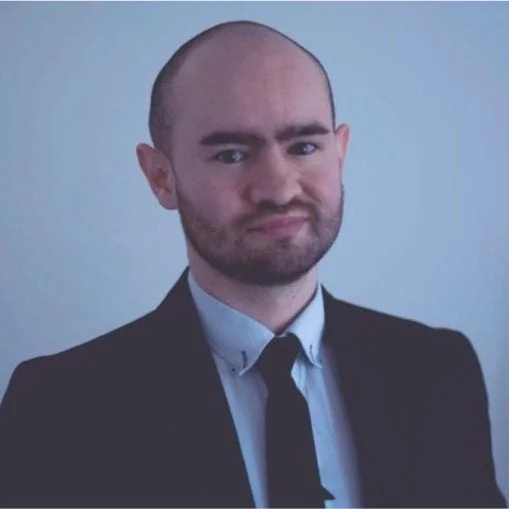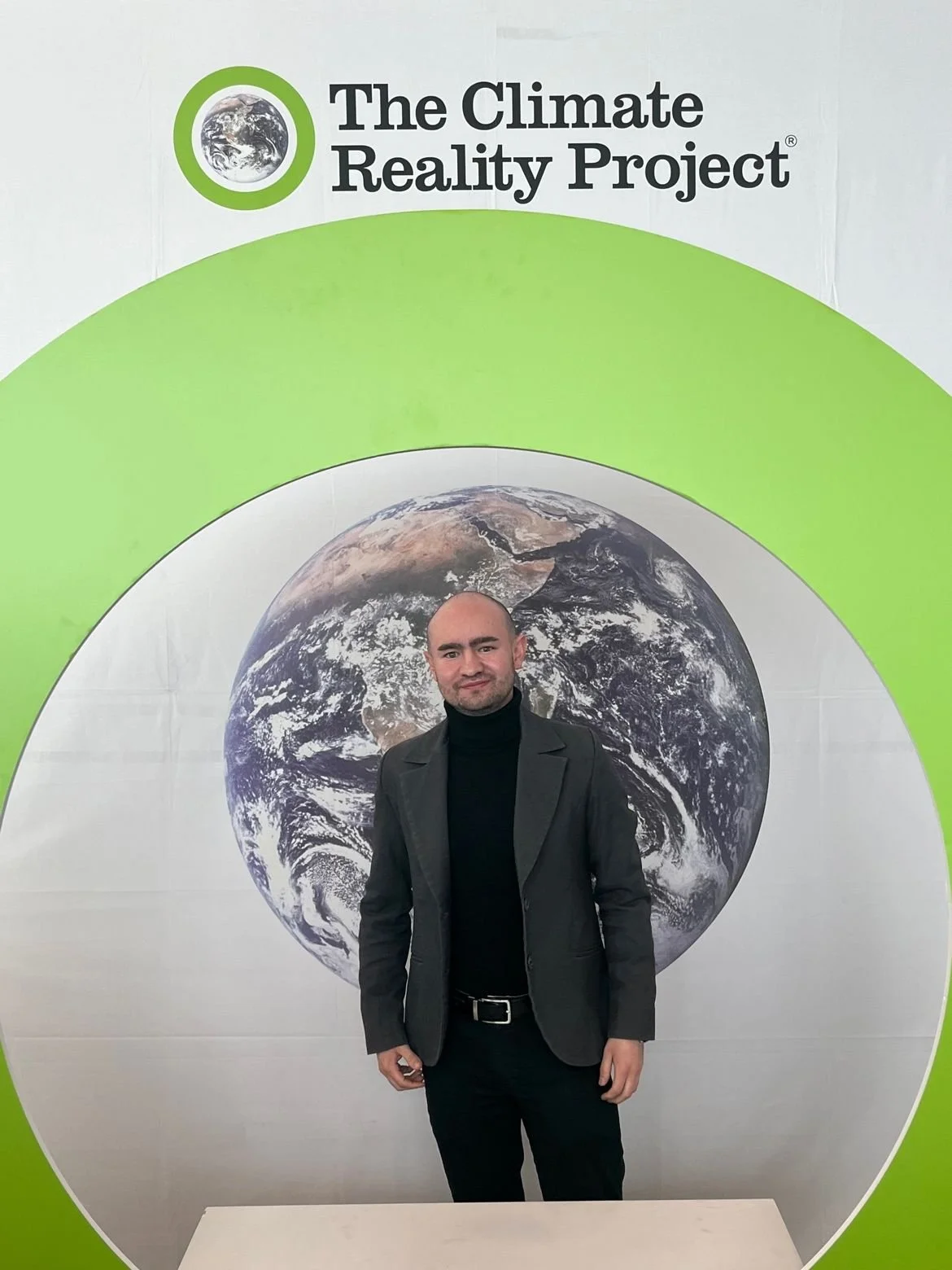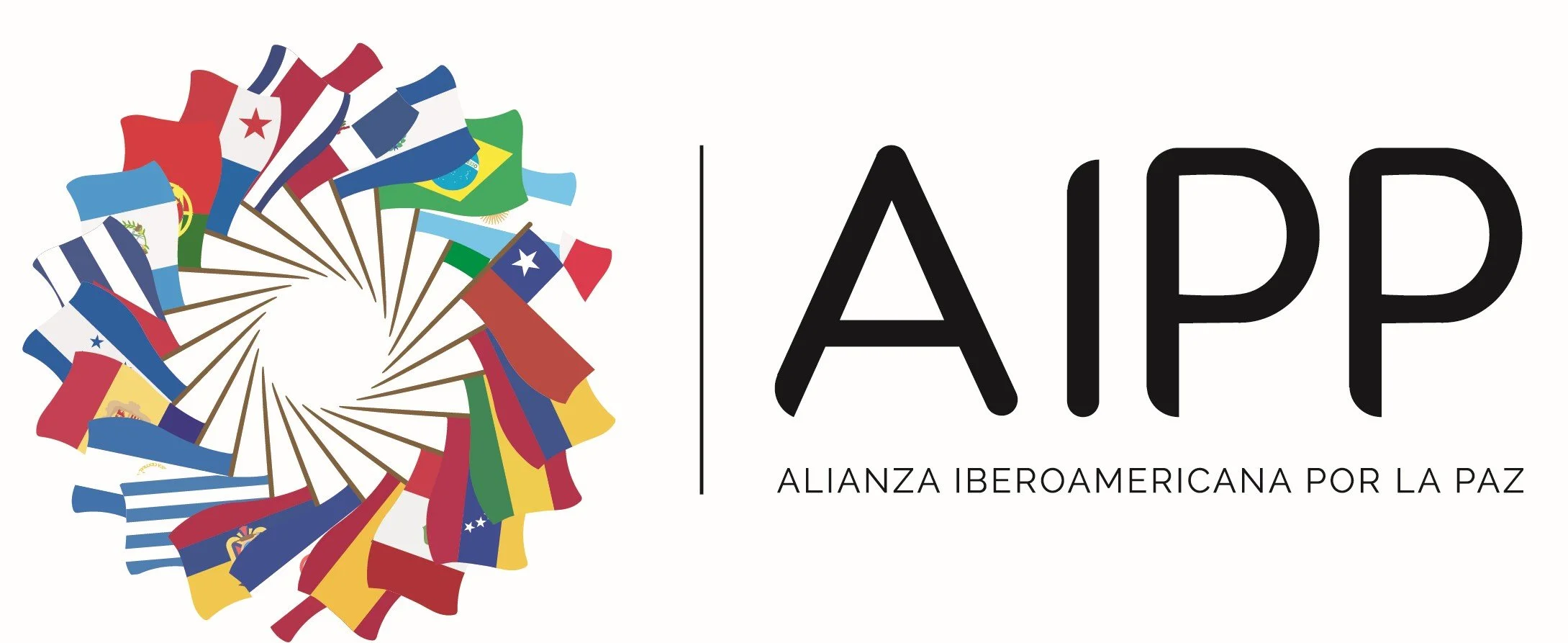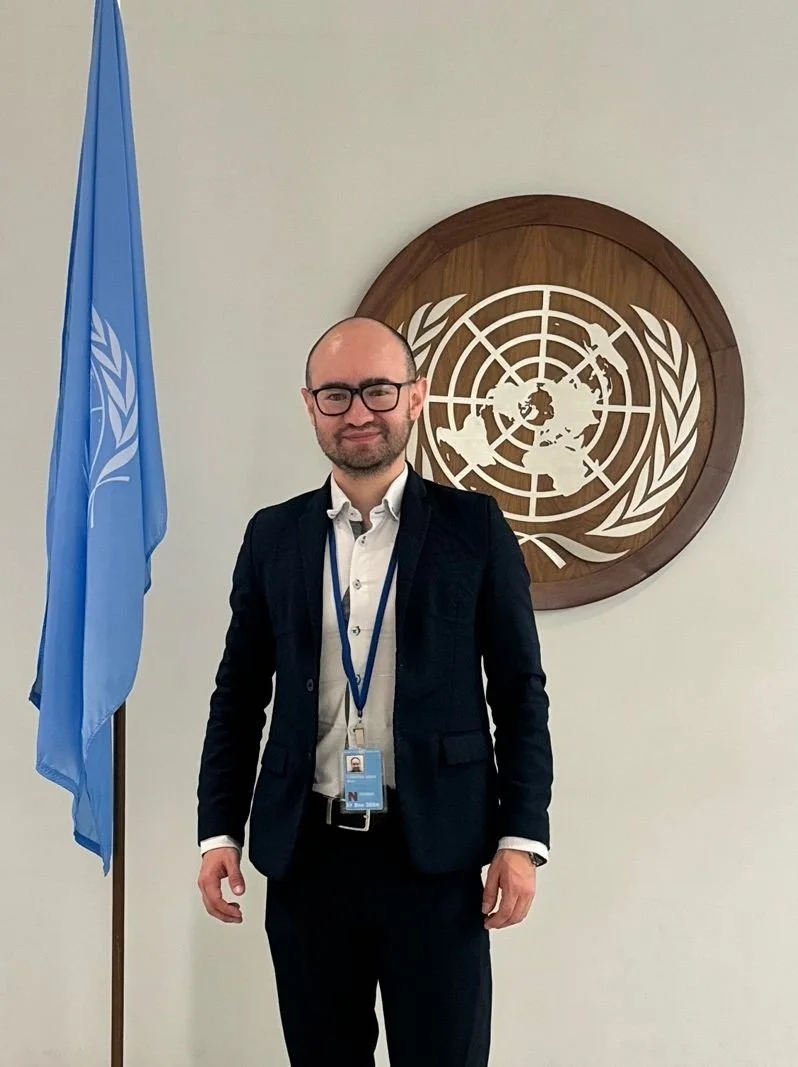Angelo Cardona
Pronouns: He/ him
Organisations: International Peace Bureau; Ibero-American Alliance for Peace (AIPP in Spanish); Ibero-American Forum for Peace
Country of Origin: Colombia
Profile
Angelo Cardona is a Colombian entrepreneur and peace activist. He works as the representative of Latin America for the International Peace Bureau. He said that two years after Colombia’s 2016 Peace Agreement aimed to end the conflict between the FARC and the government, there was an increase in killings of social leaders. Wartime power players capitalised on illegal activities and drug trafficking, fuelling the violence. In response, Angelo cofounded the Ibero-American Alliance for Peace (AIPP in Spanish) in 2018 to address violence in Colombia and more broadly in Latin America. The Alliance has fifteen staff members and over a hundred volunteers. Its three pillars include peacebuilding and education, human rights and disarmament. The primary objective of decreasing military expenditures is to reallocate the money to other ministries, such as the healthcare system. Within the Alliance, a specific committee is responsible for fostering systems to address systematic police brutality and institutional corruption. Given the limited access to education and inequality in Colombia, the Alliance also provides informal educational workshops for children living in rural areas. The aim is to inform students about peaceful problem-solving and existing institutions through which they can exercise their rights. ‘Young people need to learn how to manage disputes without recurring violence’, said Angelo. Moreover, he co-created the Ibero-American Forum for Peace to convene decision-makers, international organisations, activists, and all those involved in peacemaking to discuss strategies for peace and cooperation. He is Colombia’s ambassador to the Youth Assembly at the UN and winner of The Diana Award in 2021. In 2022, he was nominated for the Nobel Peace Prize in recognition of his work on reallocating 25 million Colombian pesos and stopping the government’s purchase of warplanes worth 4.5 million dollars.
Story
Angelo Cardona’s Ibero-American Alliance for Peace (AIPP in Spanish) became an official network in 2018. Angelo said that activities before that point had little impact due to funding shortages and informality. ‘There was no structure, and thus we struggled to reach consensus and make decisions. Also, if people are not accountable for their work, the work doesn’t get done.’ He said that as a youth-led organisation, it is difficult to gain the attention of leaders or to be taken seriously. Without being recognized as a legitimate entity, it becomes challenging to secure funding from international cooperation agencies. To attain credibility, he said that the creation of social media and a website were extremely useful – ‘Only when you set up a structure and a public profile can you make things happen.’
‘In the Alliance, we have an intergenerational work environment, with younger and older workers complementing one another,’ Angelo said. Young people may be the energetic force motrice, but seasoned experts offer evidence-based insights. Given that coordination tensions arise at times, the organisation counts on a solid problem-solving mechanism – an independent council that takes on the decision-making in case of disagreement.
Angelo said that in a polarised Colombia – where half of the country supports the peace agreement and half does not – the role of networking is crucial. The attention of political and popular figures helped his organisation gain support and solidarity from the Colombian people, broadening their reach. Furthermore, they selected locations where people could expand the network in Latin America. The Alliance held summits in Colombia, Argentina, Mexico, and Spain, always welcoming members of academic faculties from neighbouring countries. This is how the Alliance grew. ‘The biggest challenge for a young person is building that credibility. However, once you have it, work becomes much easier.’
Another hurdle that the organisation faced was keeping volunteers engaged. Upon reorganising the program, the team began visiting universities and introducing the volunteer program, seeking out individuals from careers and fields such as International Relations and Political Science. As the impact and success of this strategy grew, they decided to implement it in other countries as well. He said that the key point is that sometimes, ‘you will have to restructure the whole thing and think about what people want; you need to be flexible.’
Angelo said that personal security plays a major role – ‘Honestly, I am stressed all the time.’ The Alliance enjoys the support and partnership of politicians who support the Peace Agreement. However, the current government views them as an organisation opposing its interests. In response to their campaign against military spending in Colombia, threats began to come in, and they had to deal with defamatory comments on social media. Since various Alliance members had to relocate, the organisation began imparting an introductory workshop to equip volunteers with protection measures – ‘Security comes first.’ Angelo said that the organisation monitors the circumstances. Still, there is always a real risk. ‘Being a human rights defender is difficult in countries with colossal human rights violations. That's something you have to be prepared for. It is risky, but, I mean, someone needs to do it.’
Published in 2025




